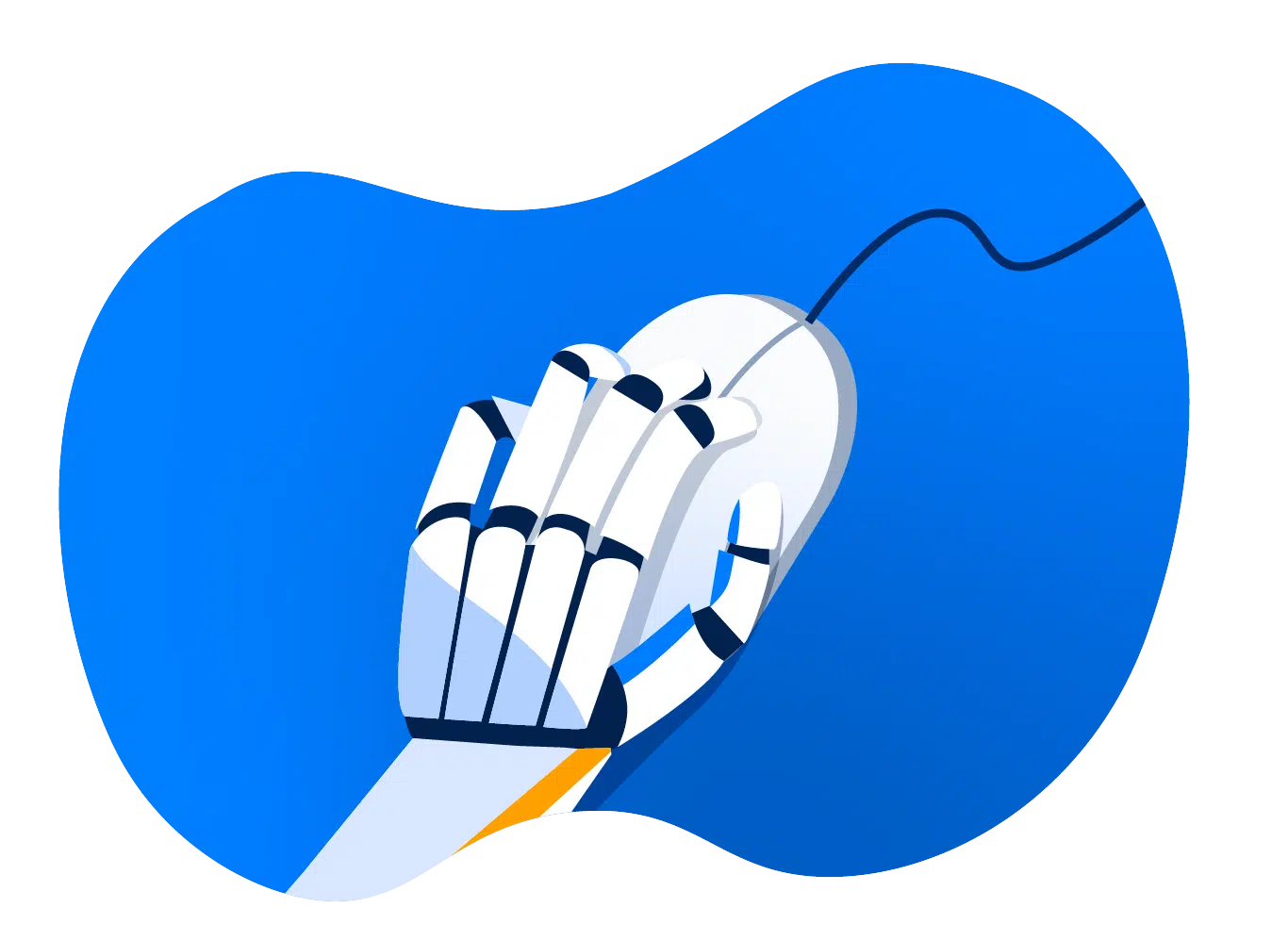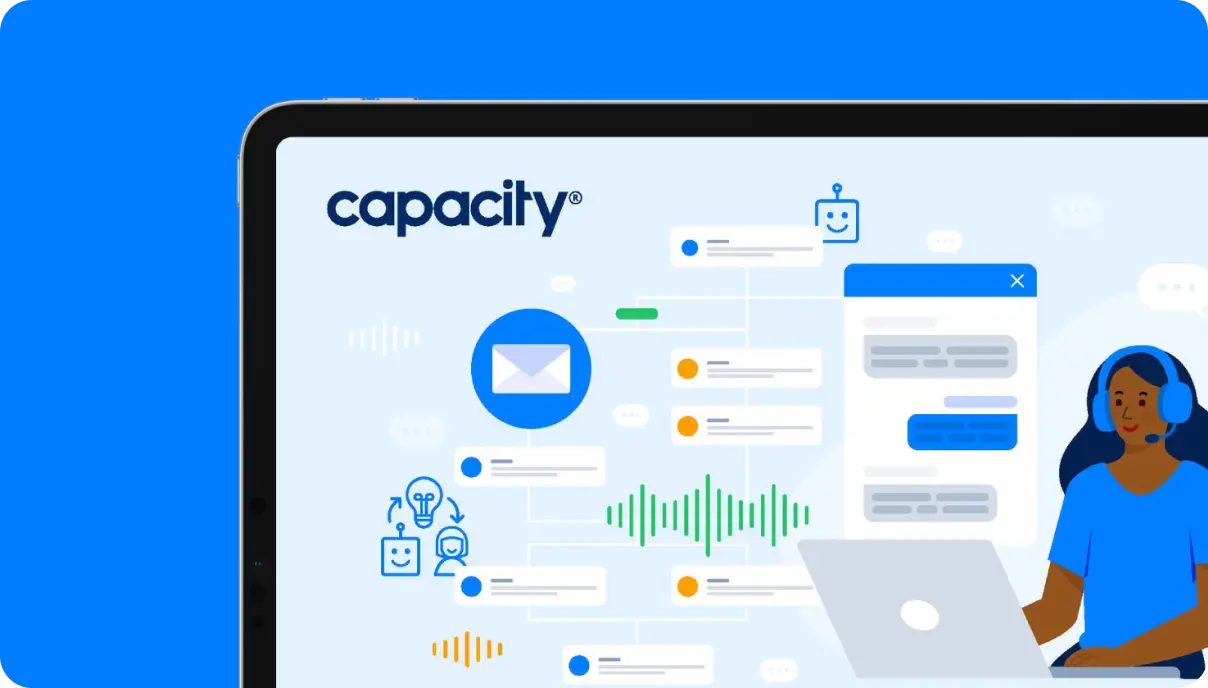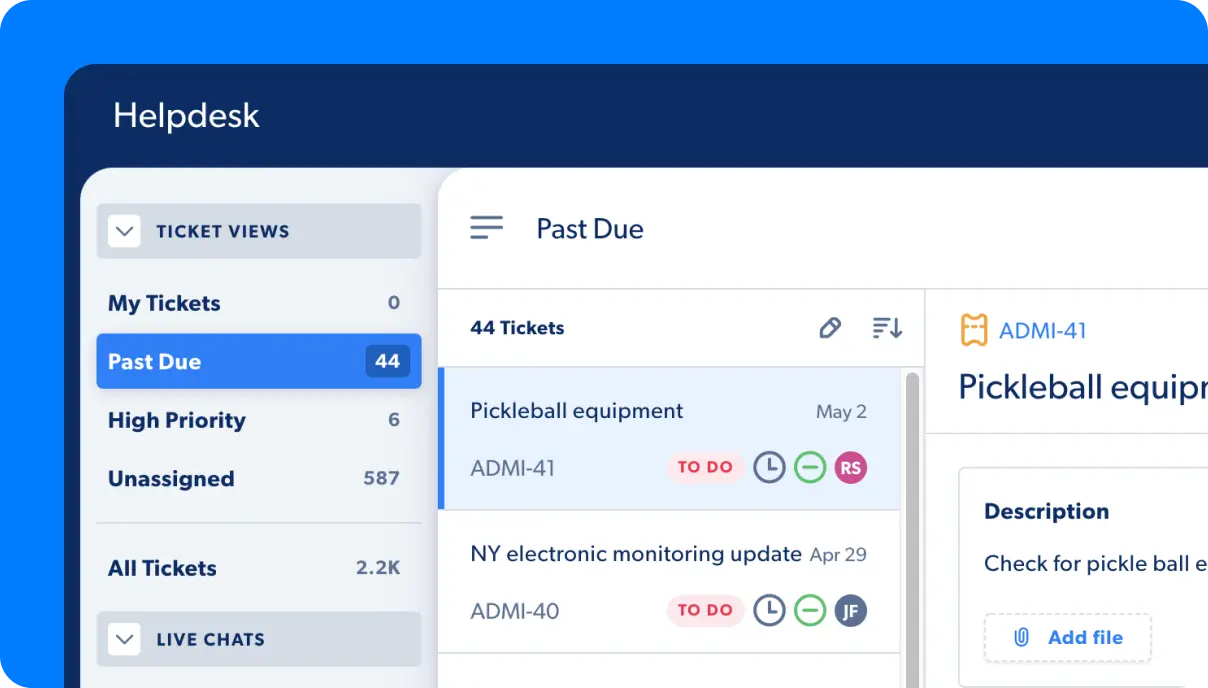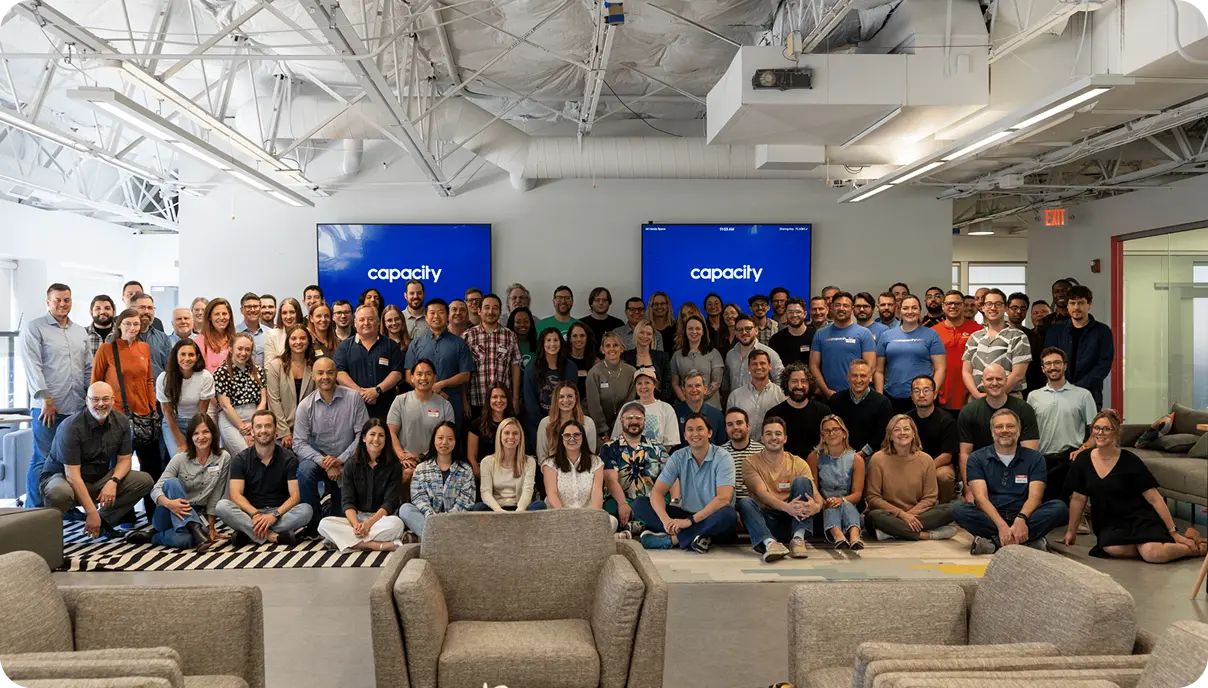Today, businesses face the tough challenge of meeting high customer expectations while building strong, lasting relationships with them. Customers expect top-notch support, which requires companies to balance their workload effectively. Enter the helpdesk CRM revolution – a game-changing technological advance that promises to transform how we approach customer support.
In this blog post, we’ll discuss the ins and outs of helpdesk CRM platforms. We’ll explore their remarkable benefits and take a sneak peek at some of the best helpdesk CRM software, including Capacity. Let’s get started!

Automate Your Work
Capacity’s enterprise AI chatbot can help:
- Answer FAQs anytime, anywhere
- Find relevant documents within seconds
- Give surveys and collect feedback
What is a helpdesk CRM?
Imagine trying to remember the names, hobbies, and hometowns of everyone you meet at a busy party. Now imagine having to do the same thing with hundreds or thousands of customers. That’s when a helpdesk CRM can be incredibly helpful!
A helpdesk CRM (Customer Relationship Management) is an all-in-one support platform that blends the features of a traditional helpdesk ticketing system with the robust capabilities of CRM software. It combines the best elements from both sides, making it easier for businesses to manage customer interactions, resolve support issues swiftly, and build lasting customer relationships.
Let’s break it down into bite-sized chunks:
Defining a Helpdesk
The helpdesk component manages and resolves customer queries and issues. It acts like a well-organized inbox where customer support requests, or “tickets,” are received, categorized, prioritized, and assigned to support agents. The help desk ensures that your customers’ cries for help don’t fall on deaf ears and that they receive timely, relevant, and efficient support.
Defining a CRM
The CRM part is the secret to building strong customer relationships.
It’s like a digital Rolodex (remember those?) that stores all the necessary information about your customers, such as their contact details, purchase history, preferences, and previous support interactions. This treasure trove of data empowers your support agents to provide personalized and insightful support, making your customers feel valued and understood.
When you mix the helpdesk and CRM elements, you get an elite combination that elevates your customer support game. Combined, a helpdesk CRM enhances your support operations, simplifying the process for your team to provide exceptional service that ensures repeat customers.
Top benefits of a helpdesk CRM

As businesses grow, managing customer inquiries can quickly become overwhelming. Fortunately, helpdesk CRM software is designed to make the process smooth and effortless. Let’s take a look at a few of the benefits of using a helpdesk CRM:
- Improved efficiency: Implementing streamlined processes and automation dramatically diminishes the need for manual tasks, allowing your team to dedicate their attention to more critical matters.
- Enhanced customer experience: With a helpdesk CRM, support teams can deliver personalized, timely, and efficient support, increasing customer satisfaction and loyalty. Happy customers are the best ambassadors for your brand, after all.
- Better collaboration: Integrating CRM capabilities into your helpdesk system improves department communication, fostering a collaborative work environment. Establishing this practice guarantees everyone is aligned and working together, leading to a smoother customer experience.
- Scalability: A helpdesk CRM can easily adapt and grow with your business, ensuring you can meet the demands of an ever-changing customer landscape. Your support system can scale as your business expands without missing a beat.
- Data-driven decision making: The robust reporting and analytics tools available in helpdesk CRM platforms enable you to make informed decisions about your support operations. Bid farewell to uncertain assumptions and welcome the era of strategic planning.
How to use a helpdesk with a CRM in 5 steps
Congratulations on your decision to elevate your customer support game by implementing a help desk CRM. It’s an excellent choice! However, like any new gadget or software, it requires some initial setup and fine-tuning to ensure smooth operation.
Rest assured, we have created a straightforward and user-friendly guide that will assist you in optimizing the advantages of your recently acquired helpdesk CRM.

Step 1: Import all the customer data
Start by gathering all your customer data and importing it into your helpdesk CRM. You’ll want to create a mix of contact details, purchase history, support interactions, and other relevant information.
This may involve integrating your existing CRM with your helpdesk platform or manually importing data from spreadsheets or other tools. Remember, the more complete and accurate your data, the better your support team can create delightful customer experiences. Some platforms (like Capacity) have built-in CRM capabilities, making a seamless transition when integrating your CRM.
Step 2: Train your support agents
When implementing any new software, it’s crucial to have a skilled team of support agents who know their way around the helpdesk CRM.
Equip them with the essential training, resources, and documentation required to become proficient in utilizing the platform. Encourage them to experiment, ask questions, and share tips and tricks with their teammates. Remember, a well-trained support team is paramount to delivering exceptional customer support.

Automate Your Work
Capacity’s enterprise AI chatbot can help:
- Answer FAQs anytime, anywhere
- Find relevant documents within seconds
- Give surveys and collect feedback
Step 3: Automate repetitive tasks
Let’s face it: nobody likes answering the same question 5000x a day.
Identify areas where automation can help streamline processes and improve response times. Set up rules, triggers, and SLAs to ensure timely responses and follow-ups. Think of automation as an extension of your support team, taking care of mundane tasks while your other agents focus on more strategic tasks.
Step 4: Add AI-powered features
Incorporating AI-powered features like chatbots and virtual assistants into your helpdesk CRM further enhances customer support. These AI tools can handle simple queries and free up your support agents to tackle more complex and nuanced issues.
Plus, AI can provide insights and analytics about customer behavior to help you fine-tune your support operations. By leveraging the power of AI, you can deliver a more personalized and efficient customer experience.
Step 5: Monitor and analyze the performance
To help ensure success, make adjustments as needed to your helpdesk CRM process. Utilize its reporting and analytics tools to monitor key performance indicators (KPIs), agent performance, and customer satisfaction levels.
Use this data to pinpoint areas for enhancement and make strategic decisions that optimize your support operations. Remember, the proof is in the pudding (or, in this case, the customer support experience)!
Best helpdesk CRM software

When choosing a helpdesk CRM software, look for a solution that aligns with your goals. We’ve listed a few of our favorites here to help get you started:
- Zendesk: A popular choice for businesses of all sizes, Zendesk offers a comprehensive suite of support tools, including helpdesk, CRM, live chat, and AI-powered self-service options. Its user-friendly interface and extensive customization options make it a top choice for many organizations.
- Zoho Desk: Zoho Desk is an affordable option with powerful helpdesk and CRM features, perfect for small and medium-sized businesses. Its seamless integration with other Zoho products makes it valuable to your software toolkit.
- HubSpot Service Hub: HubSpot Service Hub brings together a helpdesk, CRM, and customer feedback tools in one platform. Its emphasis on providing an outstanding customer experience positions itself as a formidable contender among the various helpdesk CRM solutions available.
- Capacity: Capacity is a next-generation helpdesk platform with built-in CRM capabilities. Its comprehensive features, including AI-powered chatbots and automated workflows, make it an ideal solution for businesses of all sizes. Plus, you can try it for free!
Final Thoughts
The ever-evolving customer support landscape requires IT Directors and Customer Support leaders to be innovative and adaptable. Capacity, an AI-powered helpdesk CRM, showcases how automation transforms the customer experience and support operations.
The key to thriving in this rapidly-changing environment is to harness platforms like Capacity to revolutionize how businesses connect with their customers. By embracing the potential of cutting-edge helpdesk CRM platforms, you’ll improve your support operations and contribute to a paradigm shift in customer support.
See why 1200+ companies choose Capacity and try it for free today!














































